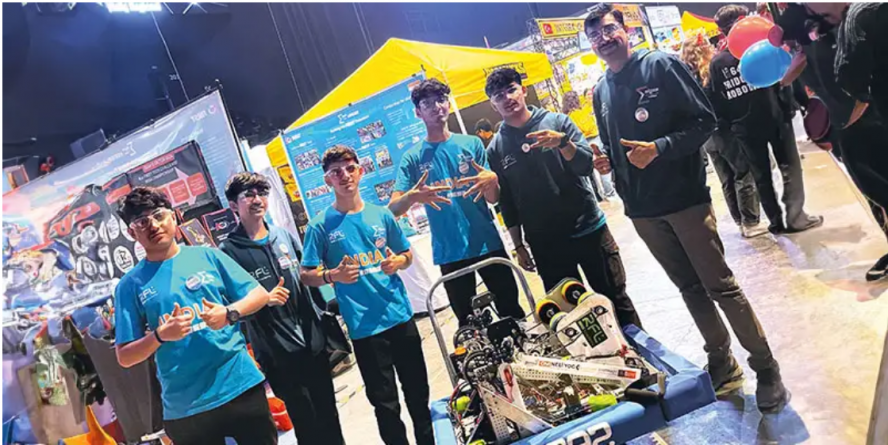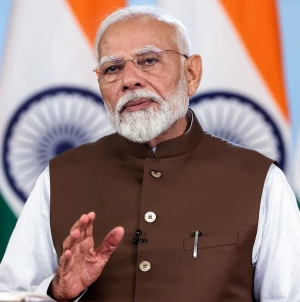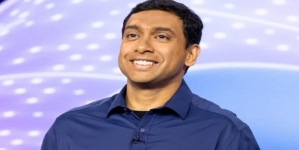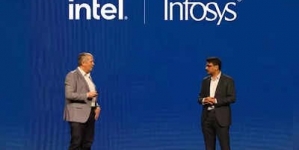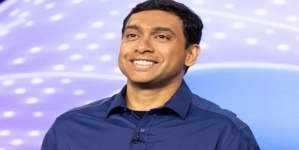-
LONDON: Run For Modi” Event In London To Drum Up Support For PM Modi - 14 hours ago
-
LONDON: Indian-Origin Candidate On How He Plans To Win London Mayoral Polls - 2 days ago
-
HARVARD: No Country Is Perfect”: Physics Wallah Urges Indian Students At Harvard, Stanford To Return - April 27, 2024
-
CALIFORNIA: PM Modi Put India On World Map As Credible Innovator- IT Industry Leaders - April 26, 2024
-
WASHINGTON: Indian Students Bag NASA Awards For Human Exploration Rover Challenge - April 25, 2024
-
LONDON: Indian-Origin Teen In UK Gets “Life-Changing” Cancer Treatment - April 25, 2024
-
SILICON VALLEY: All About Pavan Davuluri, New Head Of Microsoft Windows - April 25, 2024
-
LONDON: UK’s India Gate To Commemorate Role Of Indian Soldiers From World Wars - April 24, 2024
-
HARARE: Shri Bramha Kumar appointed as the next Ambassador of India to the Republic of Zimbabwe - April 23, 2024
-
LONDON: Indian-Origin Principal Wins UK Legal Challenge Over School Prayer Ban - April 23, 2024
HOUSTON: Mumbai boys in the final rounds of FIRST World Robotics competition to be held in Houston
HOUSTON: After coming third in the regional chapter of FIRST Robotics Competition in Turkey, Team Sigma, comprising 26 high school students from 10 different schools in Mumbai, is set to represent India in the FIRST World Championship, Houston. There will be over 500 robotics teams from across 40 different countries that will compete for the world title. Teams from Australia, the US, China, Taiwan, Turkey, and Canada, will participate in this competition to be held from April 17-20.
For Inspiration and Recognition of Science and Technology (FIRST) is among the most prominent robotics competitions for high school students globally and features over 7,000 teams from around the world. Team Paraducks is another Mumbai-based robotics squad that won the competition in Turkey, earning a place at the world championship. Team Paraducks consists of 20 students from nine different Mumbai schools.
Robots compete
The robots designed by the students compete in the championships. The competition will have various robots designed by students, participating in activities in a basketball court. The aim is to gauge the robotic performance, accuracy, speed, productivity, and time management.
At the regional championship in Turkey, the students played the league matches with the robot and appeared for multiple judging rounds showcasing their work, answering questions and narrating their journey in the last six months. The focus is to make the robots relevant to the society.
FIRST Robotics Competition is based on a particular theme every year. This year’s theme Crescendo allows participants to blend music with technology. Team Sigma’s robot has been named Bot-Thoven (coming from Beethoven). Built in 70 days, the students did multiple iterations, succeeding in their third attempt. Bot-Thoven is capable of picking up orange-coloured crescendo notes (discs) from the ground. Weighing 60 kg, it can even hang on a chain which is one of the tasks the robot is supposed to do at the competition; in this case, it can hang itself as high as 5 feet. It is capable of shooting the notes that it collects from the floor, as high as four feet. It is supposed to place the notes either in the speaker or the amplifier at the competition.
“Robots may not always work perfectly. Sometimes the robots may get damaged, and some other robots on the field may damage them. So, the students have to repair it on the spot for which they are trained. After every run, robot maintenance is done by the students. At the end of the season, we dismantle the robots due to space constraints,” says Ashwin Shah, CEO of RFL Academy, who coaches the students. Shah’s Academy in Mumbai provides systematic robotics courses to K-12 students and mentors students for international robotics competitions. “After qualifying for the world championship, the students will be competing with even more rigour at Houston. Considering the number of participants, the level of competition will be tougher,” says Shah.
‘Rookie All Star’ award
There were 53 participating teams in the regional competition. Being a rookie team, Sigma won the coveted ‘Rookie All Star’ award for promoting robotics among various communities of the society, including underprivileged students. Besides participating in competitions, the students are also involving students from underprivileged families to learn about robots. The students have conducted almost 12 different community upliftment programmes and have raised over Rs 12 lakh, to start six robotic labs across six underprivileged schools in Mumbai. These labs help in training over 2,500 students belonging to unprivileged families who are learning robotics and coding. It was due to think work, that the students were awarded the ‘Rookie All Star’ award,” says Shah. “The parents have funded the competition costs and the entire trip for the championship; however, we expect government sponsorship soon, he says.
Prepare for competitions
“We run some regular courses at the academy where students come and learn robotics. Students, showing eagerness to learn and develop skills, are selected for the robotics competition, and are trained. We presently run our own private labs where students register. We are intending to collaborate with schools in the future. We are not mentoring any school team as the schools are apprehensive to accommodate the costs of integrating it as a school programme,” says Shah.
“The major challenge for Sigma was procuring parts of the robots, which were not available in India. We had to procure them from the US, which increased the expense,” he says. “India is adopting robotics in a big way. People trust the automation process, including the SMEs. We take the students on field trips to various industries where robots are used in their day-to-day lives. This helps them get a better idea about the application of robotics. They learn and try to integrate some of those concepts into their original robot as well. If they are exposed to such subjects, they are better equipped for the future,” he adds.
What is FIRST
Established in 1992 in the US, it was founded by Dean Kamen, an American engineer, inventor, with a vision to reduce dropout rates between high school and college, specifically in the US. Gradually, the programme started gaining momentum, and today there are almost 130 countries onboard this programme. There are different competitions for different age groups.



















